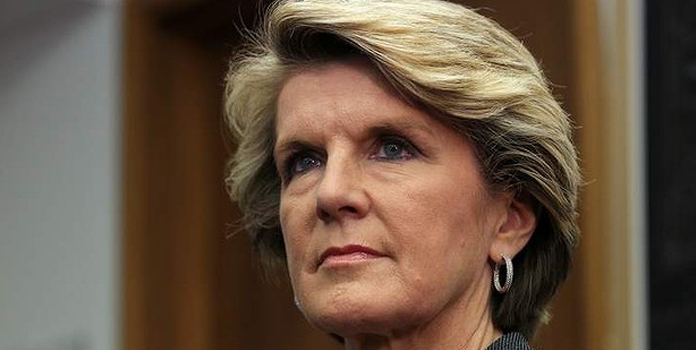
Australian Foreign Minister Julie Bishop has refused to elaborate on why Australia's high commissioner to Papua New Guinea left her post eight months early.
The Department of Foreign Affairs and Trade (DFAT) confirmed this week that Deborah Stokes departed her PNG post and said she would be taking up another overseas assignment.
Bishop did not give any further details about the unexpected departure when asked at a media conference in Melbourne on Friday.
“These are opportunities for a new high commissioner to be appointed to Papua New Guinea and for the current high commissioner to take up another appointment, and this happens all the time in our missions,” Bishop said.
“There's rotations, opportunities for advancement, opportunities for people to take up other positions.”
Asked if Ms Stokes' departure had anything to do with Australia's plans to establish a diplomatic mission in the autonomous region of Bougainville, Bishop did not elaborate.
“Each appointment is considered on its merits and each transfer obviously has a number of reasons for it, but in this case I understand the high commissioner will be going to another post,” she said.
Australia's decision to set up a Bougainville mission has angered PNG prime minister Peter O'Neill, who says there has been no consultation.
In May, Bishop denied there had been a failure to consult, saying the matter was discussed and formally communicated.
Jenny Hayward-Jones, director of the Melanesia program at the Lowy Institute, said the timing of Stokes' departure was “unusual”.
“I think the timing of it does raise some questions about why now, with the 40th anniversary of independence coming up in September and PNG hosting the Pacific Islands Forum, it is unusual timing,” she told the ABC.
DFAT said deputy high commissioner Bronte Moules would act in the high commissioner role.
